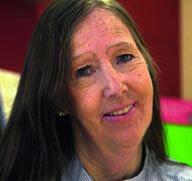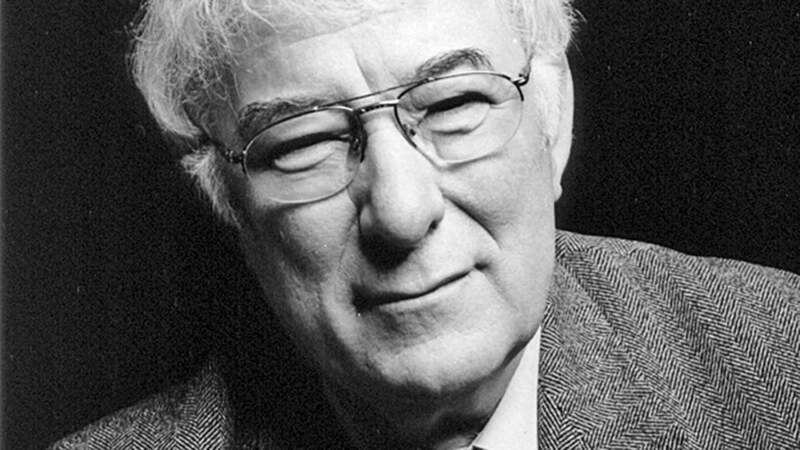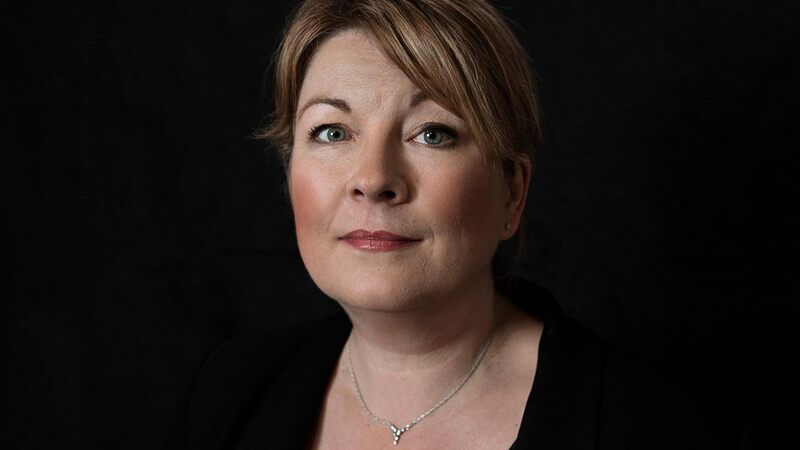You are viewing your 1 free article this month. Login to read more articles.
Martha Long | "I Was born to provide; writing was the first time I had done something for myself"
Here is professionalism for you. A few days before I am to meet Martha Long the interview is up in the air; Long has been hospitalised for a “serious yet non-life threatening” ailment.
Yet, a day later I am told she has rallied and we are back on.
When Long walks in to the lounge at the Clarence Hotel off the Temple Bar in Dublin, she looks a bit pale but otherwise hale and hearty. I tell her I am glad that she is out of hospital. “Oh no, I’m going right back in, I just signed myself out for an hour or two,” she says. “I figured you came all this way, the least I could do was show up. I am on a lot of medication, though. This might be a very interesting interview.”
Long’s writing career is about making her life interesting. She has written six memoirs in her popular Ma . . . series published by Mainstream—the first of which, Ma, He Sold Me for a Few Cigarettes, was published in 2007—about her hard-scrabble life growing up and being a young adult in 1950s and ’60s Ireland, dealing with a feckless mother, cruelly abusive step-father, crushing poverty, a heartless state system, the looming shadow of the Catholic Church, homelessness and teenage pregnancy.
The seventh and final book in the series, Ma, Jackser’s Dyin’ Alone, is a blunt, brutally honest yet at times humorous account of Martha in her thirties. After finally getting some measure of redemption and stability in her life, she is coming to terms with her feelings about the illness of Jackser, the long-term abuser during her childhood.
Long holds nothing back, as when she first goes to the hospital to visit the dying Jackser: “I will have a hooley on his grave. Oh gawd yes! Drink, dance and spit on it. I make me way slowly down the passages, humming a tune, a feeling of such pleasure hitting me, it’s nearly painful. Oh my gawd, life is a bowl of cherries! How can ye get te be this happy?”
Long’s books are, broadly speaking, misery memoirs, published at the height of the craze in the mid-Noughties and packaged in the livery of the now declining genre. Yet lumping the Ma . . . series in with the rest of the books in the category is like comparing John le Carré’s output with pulp spy stories. Long’s books are a genuine literary achievement, head and shoulders above anything else in the genre, a social document with a compelling human face written by a truly gifted storyteller; far closer to Jennifer Worth’s Call the Midwife than Dave Pelzer
Ma, He Sold Me for a Few Cigarettes
Long initially did not want to write her story for publication. By the 1990s she had escaped poverty and was living a largely middle-class existence in Dublin—two young children, and a third grown-up daughter from a previous marriage. Then “someone very close to me, who I had given practically my whole life to, turned her back on me, shut me out in a cold, callous way”. Long does not want to say more about their identity (“she may sue”) or the circumstances, but begins to well up.
“It hurts even now?” I say.
She shakes her head and starts to laugh. “No, that’s the feckin’ drugs. This wouldn’t be happening if it wasn’t for the medication.”
Long sat down to write “a poisoned letter, put a flea in her ear” to this person to explain her life, where she has come from. “It dawned on me: who the hell does she think she is? She judges me, but she doesn’t know anything about me. But there was something about self-discovery, too. For me, there was always this wanting to escape. I had become what I thought I wanted to be, but always there was the running and moving away. What was I? Who was I? I was nobody. I was a sham, an actress, a chameleon. I always felt a fraud.”
For two years she wrote obsessively between school runs, channelling the voice of the young Martha, reliving the horror of her childhood. She admits it was traumatising, but cathartic and empowering. “I was born to provide, in a way—I looked after my mother from the age of four. That was the first time in my life that I had done something truly for myself.”
Bill Campbell
What Long was writing became a private thing, until a friend of hers stopped by for a coffee and started to read some of what Long had left out on the kitchen table, and urged her to try to find a publisher. The first to respond was Bill Campbell, the Mainstream co-founder, who called her and asked: “Is this fact or fiction?”
She says: “It was all chaotic when I answered the phone—the kids were yelling at the dinner table, the dog was jumping up trying to get the roast beef. But everything slowed down and I thought: ‘Here is what your life comes down to. Do you expose yourself completely, warts and all?’ And I said [it was] fact.”
Long was as taken aback as most when Campbell and Peter Mackenzie said they would close Mainstream at the end of the year, with the titles transferring to part-owner Random House. “I was floored when Bill called and told me. There is a great bond and trust and a good working relationship. There might not be that family feel [with Random House], knowing exactly who to talk to when you pick up the phone. There might not be that easy rapport, trading those flying insults, knowing there is no harm behind it.”
With the Ma . . . series finished, Long is planning to make the jump to fiction. A complete autodidact, she says what helped her find her voice for the memoirs was not knowing the rules and regulations, so she could write authentically in “old speak” Irish dialect. She demurs that she is unsure of herself about turning to fiction: “Writing non-fiction, I was tethered, there is a beginning, middle and end. What do I write about with fiction?”
Yet Long proceeds to talk up the book she is working on, about two Dublin sisters growing up in the 1950s. She relates plot points (a beginning, middle and end), goes through particularly funny/sad scenes doing various voices of the characters. Whilst she does this, the crowded Clarence Hotel lounge quiets as people on nearby tables are pulled in by the story, leaning in, quite obviously eavesdropping. Somehow, I think the transition to fiction may be completely seamless.
Book data
Publication date 12/09/13
Formats TPB/EB
ISBN 9781780576510/8194
Rights Sub-rights through Trident
Editor Bill Campbell, Mainstream
Agent Don Fehr, Trident Media
Martha Long's top five
Ma, He Sold Me for a Few Cigarettes
Mainstream, 9781845963132, £7.99
Long’s earliest memories, growing up in Dublin with an abusive stepfather.
Books sold: 89,568 since 2007
Ma, It’s a Cold Aul Night an I’m Lookin for a Bed
Mainstream, 9781845965822, £7.99
In her third book, Martha is 16 and on her own at last in 1960s Dublin.
Books sold: 45,445 since 2009
Ma, I’m Gettin Meself a New Mammy
Mainstream, 9781845964498, £7.99
At 13, Martha is separated from her mother and stepfather, and put in a harrowing convent school.
Books sold: 41,585
Ma, Now I’m Goin Up in the World
Mainstream, 9781845967031, £7.99
As a young woman, Martha’s calamitous love affair has heartbreaking consequences.
Books sold: 23,379 since 2010
Ma, I’ve got Meself Locked up in the Madhouse
Mainstream, 9781780575414, £7.99
Now in her thirties, a confrontation with the evil Jackser sends Martha’s life spiralling out of control.
Books sold: 22,787 since 2011










